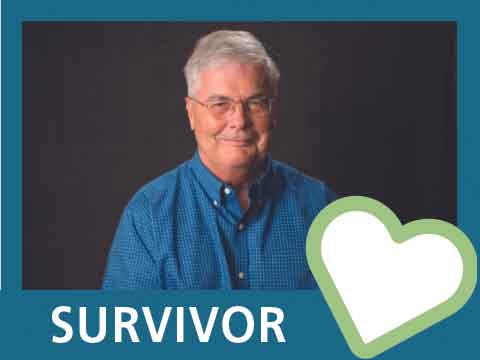Posted on: 24 Sep 2021

When I was 55 years old, I had a slightly elevated prostate-specific antigen (PSA) of a little over 5. I went ahead and had a biopsy. The biopsy came back negative. I assumed I was fine; I felt fine. I stayed fit and ran 15-20 miles a week. After a few years, my wife, a nurse, would say, “You have to go and get yourself tested.” Finally at 60, she said “Phil, get a physical!” I did. The PSA level was up to 30. The most recent biopsy said I had advanced stage prostate cancer with a Gleason score of 10. I was still running daily and had no sense that I had cancer.
It was really tough to figure out what to do. I felt my choices were limited because the cancer was so advanced. When I look back now, I wish I did not wait so long to be tested again. We have to be our own advocates. We have to be reminded that bad stuff can happen if we do not keep tabs on our health.
When diagnosed with advanced prostate cancer, I was fearful of the unknown. What helped me most was to learn everything I could about my options. I began to learn what I could do and what to expect, and it helped. By learning everything I could, it helped me make treatment decisions along with my doctor. I asked a lot of questions.
Whether we are talking with a surgeon or radiation oncologist, men should not be afraid to ask questions and get second opinions. We must learn everything we can about treating prostate cancer and about the side effects of treatment.
It was tough when I had to deal with the side effects men really fear, like impotence and incontinence. Fortunately, I had surgeries to correct these problems. I am not the same as I was before, but I am alive and well. I have learned to accept, appreciate and deal with my own situation.
I now work as a prostate cancer recovery coach. I help men who are newly diagnosed talk through what to expect. I like to help others because, for me, it helped to be able to talk to someone else who had been through the same situation. My advice is for men to find someone to talk with about what you are going through.
To learn more about advanced prostate cancer, check out this resource.
Explore Further
Share Your Story
Have a story to share? The Urology Care Foundation invites you to share your experience with a urologic condition and how it has affected you or your family.
Make a Differnece
Your tax-deductible gift will help support the millions of patients who are faced with urologic disease. Together, we care.



